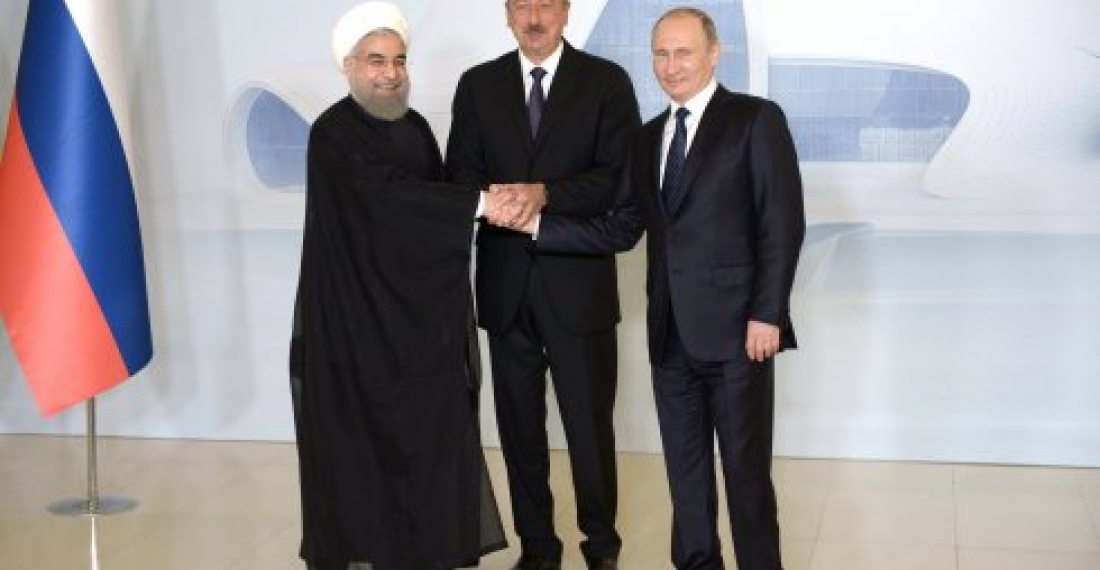Azerbaijan, Iran, and Russia have agreed to work together for the construction of a 7200 kilometer North-South TransportCorridor which is expected to provide a faster and more efficient trade connectivity between Europe and the Gulf Region, and South and South East Asia.
The three presidents announced this in a joint statement at the end of their first historic trilateral summit in Baku, held on Monday (8 August).
Russia's President Vladimir Putin, Iran's President Hassan Rohani and Azerbaijan's President Ilham Aliev in their statement also agreed to cooperate on natural gas industry. They said in their statement that they will specifically work together over the transfer of technology as well as the shipment and delivery of gas.
Putin, Rohani and Aliev also voiced support for efforts to connect the power grids of their respective countries which they said would contribute to the sustainable development of the region.
The significance of close banking cooperation to attract investments and bring in new technologies for development projects was also highlighted in the trilateral talks.
The final declaration also highlighted the importance of joint efforts in the fight against terrorism and the three sides agreed to develop a trilateral mechanism.
Azerbaijan, Iran and Russia are all Caspian Sea littoral countries, together with Kazakhstan and Turkmenistan. The declaration makes a vague reference to the current disputes regarding the status of the Sea and the delineation of territorial waters and economic zones between the five littoral countries
Speaking at a press conference at the end of the summit, Russian Foreign Minister Sergei Lavrov said the five countries Presidents will meet soon in Kazakhstan, and at the Baku summit it was agreed to continue working to prepare this meeting.
Russian President Vladimir said before leaving for Baku that the transport corridor "aims to provide the best possible opportunities for transporting transit cargo from India, Iran, and the Persian Gulf states to Azerbaijan, the Russian Federation and further to northern and western Europe".
Putin stayed in Baku for only a few hours, during which he also had separate meetings with President Aliev and President Rohani.
Commonspace.eu political editor said that "this first trilateral summit gave a political boost to the three leaders, and potentially opens the way for serious co-operation between their three countries that could contribute enormously to their economic prosperity. There is however a big difference between planning something and actually implementing it. The three countries have very different political and economic systems, and harmonising their laws and working methods to turn the ideas into practical measures will take a huge amount of effort and will. Other countries in the region may also not find the ideas being put forward as attractive. The Baku Summit however was a significant step in regional co-operation and its potential should not be underestimated either."
More on this story on our live blog here
source commonspace.eu
photo: The Presidents of Iran, Azerbaijan and Russia after their trilateral summit in Baku on 8 August 2016 (picture courtesy of the press service of the president of Russia).






